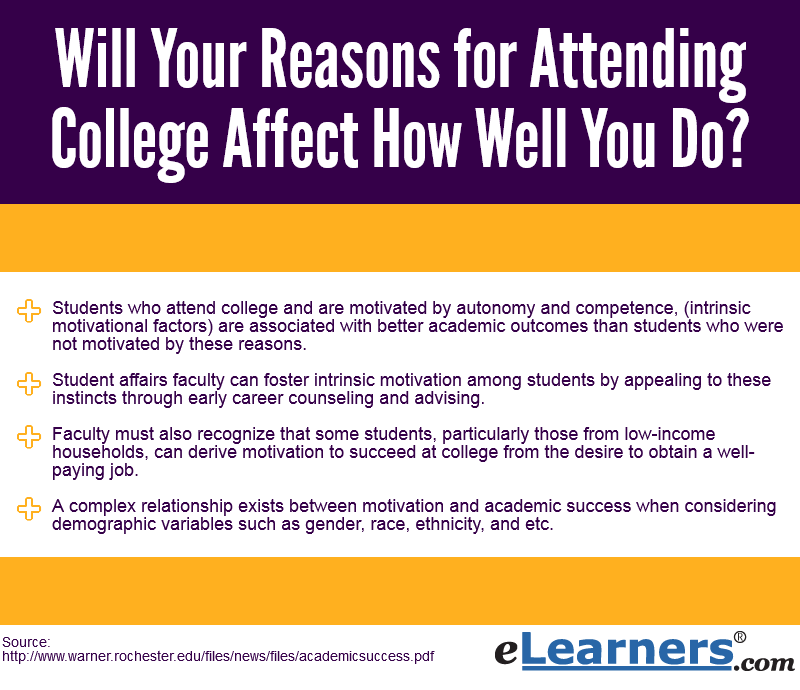Are you thinking of going back to school? If so, consider whether the reasons motivating you will lead you to academic achievement.
According to a recent report by Project Muse, a correlation exists between the reasons motivating students to attend college and their academic performance, as well as whether they persist through to graduation. [1] Below are highlights from the report.
What's the purpose of the report?
Academic professionals conducted a study to better understand the relationship between student motivations to attend college and academic achievement.
The survey:
Polled 2,520 college students in the Northeastern United States
Aimed to prove that self-determination theory (SDT), an intrinsic motivational theory where motivation is derived purely from the satisfaction of achievement, is more conducive to learning
Aimed to show that extrinsic motivation, or motivation to achieve an external reward or to avoid a punishment, did not lead to the best academic outcomes
Considered how background factors, such as gender and socioeconomic status affect academic outcomes
What are the findings?
The Project Muse report findings indicate [1]:
Students who attend college and are motivated by autonomy and competence, (intrinsic motivational factors) are associated with better academic outcomes than students who were not motivated by these reasons.
Student affairs faculty can foster intrinsic motivation among students by appealing to these instincts through early career counseling and advising.
Faculty must also recognize that some students, particularly those from low-income households, can derive motivation to succeed at college from the desire to obtain a well-paying job.
A complex relationship exists between motivation and academic success when considering demographic variables such as gender, race, ethnicity, and etc.
What's the takeaway?
The major takeaway from the Project Muse report is that an important relationship exists between intrinsic motivations to attend college and academic achievement and persistence. Students who were motivated to attend college to fulfill the needs for autonomy and competence are associated with better academic outcomes.
Furthermore, the report indicates that demographic variables make the relationship between motivation and academic achievement and persistence more complex. Student affairs faculty who are armed with the understanding of this relationship will be able to assist students in ways that will foster success.

